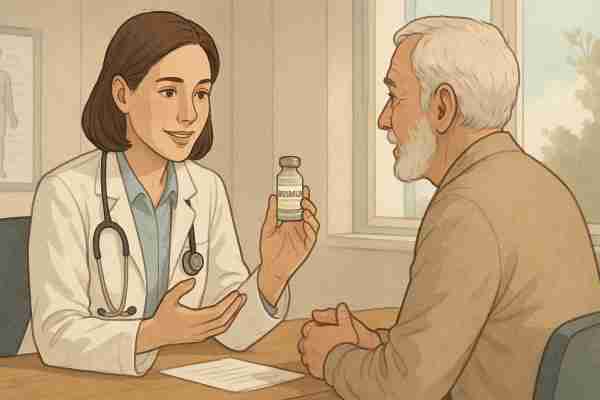Maria is a young rheumatologist practicing in a small town. Every day, she faced patients unable to afford expensive biologic medications like Humira or Remicade. At a medical conference, she heard a lecture about biosimilars—accessible versions of original biological drugs that offer comparable efficacy and safety at a much lower cost. She became intrigued and decided to dive into research. In the evenings, she read scientific papers, studied clinical trial data, and compared reference drugs with their biosimilars. Back at the clinic, she organized educational sessions for patients, explaining the benefits of biosimilars. Many were hesitant at first, but she presented facts and real-world examples, reassuring them that biosimilars undergo strict quality control and are approved by international regulatory agencies. A few weeks later, her regular patient Peter, suffering from rheumatoid arthritis, came in. Due to the high cost of treatment, he had almost stopped taking medication. Hearing about biosimilars from Maria, he agreed to try. A month later, he returned, energetic and smiling. 'Doctor, thank you. I can work again. The pain is gone, and I feel alive,' he said. His words touched Maria deeply. She saw biosimilars not just as alternatives, but as lifelines enabling patients to live fully. She gradually implemented the approach in her practice and shared her knowledge with colleagues. One day, she was invited to speak at a medical university. Proudly, she shared her story, citing real cases of improved lives due to affordable medications. Maria realized that small steps can lead to major change when taken with faith in kindness and the power of science. Thus, biosimilars became not just a lecture topic, but part of her medical journey and a symbol of hope for hundreds of patients.
When Maria Learned About Biosimilars

Published : 11.07.2025
